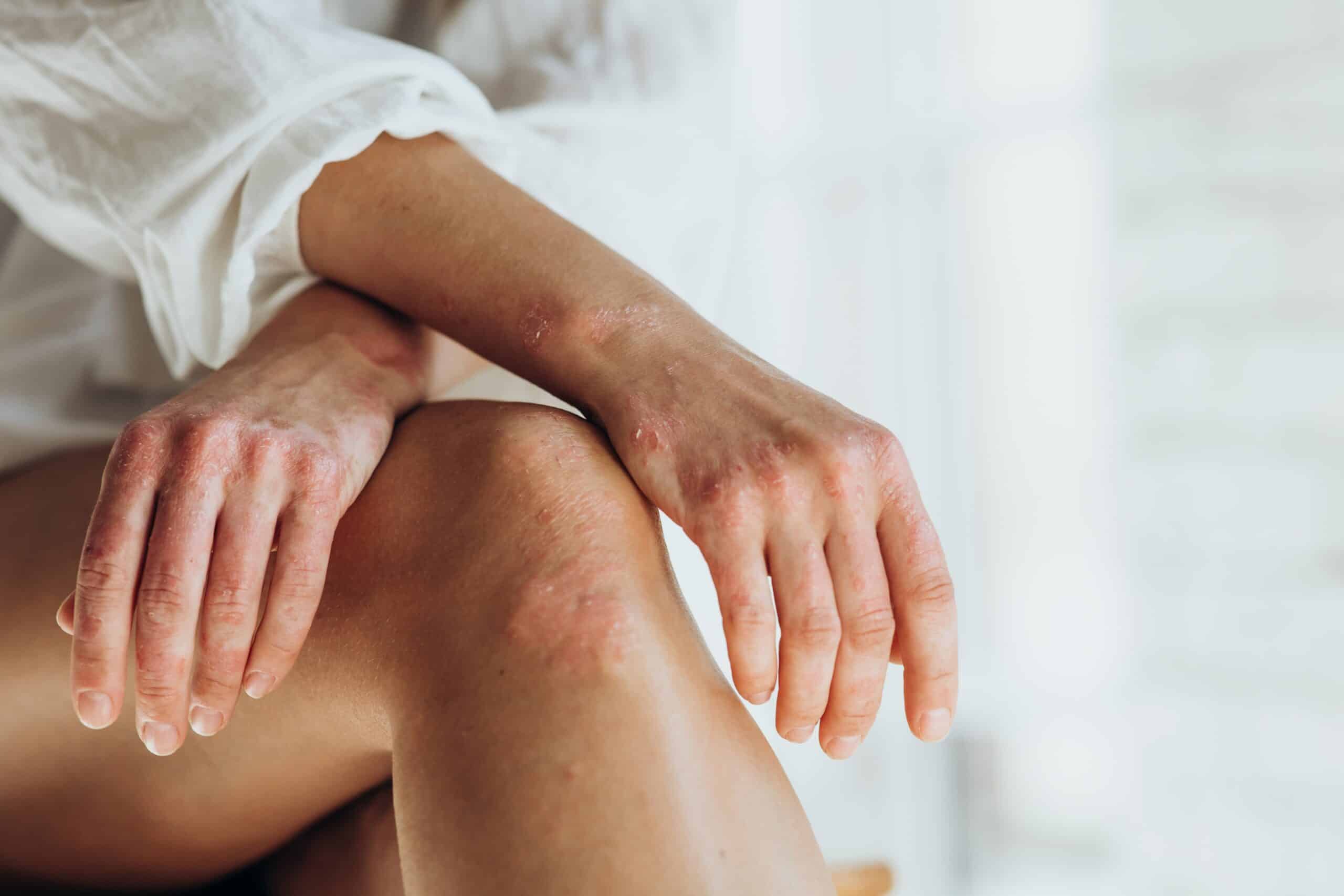Psoriasis Awareness Month: How Weather Affects Symptoms
 If you’ve ever noticed your psoriasis flaring up during seasonal shifts, you’re not alone. Since August is Psoriasis Awareness Month, now is the perfect time to explore how weather changes might be impacting your skin and what you can do about it.
If you’ve ever noticed your psoriasis flaring up during seasonal shifts, you’re not alone. Since August is Psoriasis Awareness Month, now is the perfect time to explore how weather changes might be impacting your skin and what you can do about it.
At Dermatology Treatment and Research Center in Dallas, Dr. Ross Radusky, a board-certified dermatologist, and PA Shevonne Chude, an active member of the Society for Dermatology Physician Assistants, combine advanced therapies with compassionate care to help patients find relief from chronic skin conditions like psoriasis.
How Cold Weather Triggers Psoriasis
Although Dallas winters are not as cold as winters in other parts of the country, temperatures still drop and can create problems for people with psoriasis. Colder temperatures usually mean:
- Less sunlight: UV light slows down the overproduction of skin cells. With shorter days and less sunshine, symptoms can worsen.
- Dry air: Cold air holds less water, and indoor heating pulls even more moisture from the skin. This can cause dryness and irritation.
- Layering up: Friction from heavy clothing can aggravate plaques, especially on the elbows, knees, and back.
What About Summer Weather?
Some people with psoriasis experience improvements during warmer months. Summer can be a challenging season for others, though. The intense heat and high humidity that hit the Dallas area can lead to triggers like:
- Sweat buildup: Excessive sweating can irritate psoriasis-prone areas, particularly in skin folds or under clothing. This results in inflammation and discomfort.
- Heat rash and friction: Hot weather often means increased movement and tighter clothing. These can cause friction and exacerbate sensitive skin.
- Sun sensitivity: Moderate sun exposure can be beneficial. However, too much can lead to sunburn, a common trigger for psoriasis flare-ups.
Seasonal Tips for Managing Psoriasis
Staying in tune with weather changes can help you control your psoriasis and experience more consistent relief.
During the winter:
- Use a humidifier indoors to combat dry air.
- Apply thick, fragrance-free moisturizers regularly.
- Consider phototherapy or prescription treatments if flare-ups persist.
When summer rolls around:
- Enjoy moderate sun exposure (10–15 minutes a day) while avoiding burns.
- Stay hydrated and wear breathable clothing.
- Protect sensitive skin with mineral-based sunscreen.
Get Personalized Psoriasis Care in Dallas
At Dallas’s Dermatology Treatment and Research Center, patients benefit from board-certified care, cutting-edge clinical trials, and a dedicated team that takes the time to educate and empower.
Ready to take control of your psoriasis? Call us at 972-661-2729 or schedule your consultation online today.